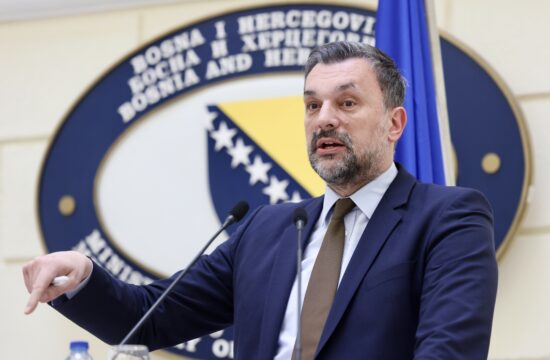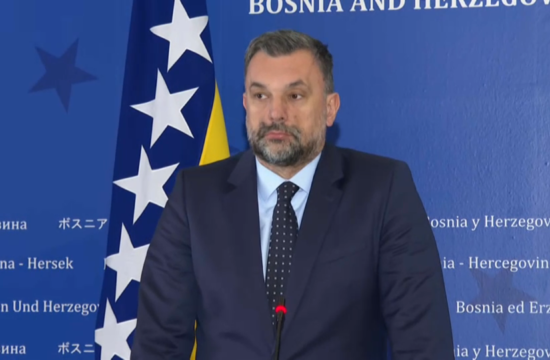
In my opinion, no punishment would be too big for Radovan Karadzic, said the Leader of Vojvodina's Social Democratic League, Nenad Canak on Thursday, speaking to N1.
“Any punishment for what happened in Bosnia in the nineties is too small, because it was a murder of an entire civilisation, not just an ethnic group, even though Bosniaks suffered the most,” Canak said commenting on the verdict to the former Bosnian-Serb leader Radovan Karadzic who was sentenced to life in prison by the international court for his role in the Bosnian war.
Radovan Karadzic, the first President of the then self-proclaimed ‘state’ of Republika Srpska within the sovereign state of Bosnia and Herzegovina, was sentenced to life in prison by the International Residual Mechanism for Criminal Tribunals (IRMCT) which confirmed his involvement in the Srebrenica genocide which claimed the lives of some 8,000 Bosniak men and boys from the area of the eastern town of Srebrenica.
The Court also found that Karadzic was involved in crimes against humanity that were committed across Bosnia, the four-year siege of Bosnia's capital – Sarajevo and four joint criminal enterprises.
Speaking about claims that Serbia can celebrate because the verdict does not mention Serbia's involvement in the 1992-1995 war in Bosnia, Canak said that Serbia must learn from the tragic events from the nineties and set a new course.
“The silence from Serbian authorities and one part of the opposition to the Karadzic verdict is booming and cannot be ignored. I think the authorities and the opposition should distance themselves from all of this and understand the verdict as an end of a horrible era and a pledge that similar events should never happen again,” Canak concluded.
The International Criminal Tribunal for the Former Yugoslavia (ICTY) charged Karadzic and former Bosnian Serb army general Ratko Mladic in 1995 with crimes against humanity, violations of laws of war, grave violations of Geneva Conventions and unlawful transfer of civilians on religious and national grounds.
The war in Bosnia left some 100,000 people dead and over 2.2 million displaced. The most recent estimates by international and local researchers say that between 12,000 and 20,000 mostly Bosniak women were raped.
The ICTY sentenced Karadzic to 40 years in prison in 2016 for crimes against humanity, including the ethnic cleansing of Bosniaks and Croats, the siege of Sarajevo, the Srebrenica genocide and for taking UN peacekeepers hostage. He was acquitted of genocide in other municipalities in Bosnia.
But the IRMCT, the court which took over the unfinished job of the ICTY once it closed its doors in 2017, handed down the final ruling, on Wednesday.
The most recent public opinion research in Serbia showed that most Serbian citizens either do not know that genocide was committed in Srebrenica or they deny it. Canak concluded that this is not surprising considering that former Serbian President Slobodan Milosevic's role in the events from the nineties was covered up by those who actually know the truth.




